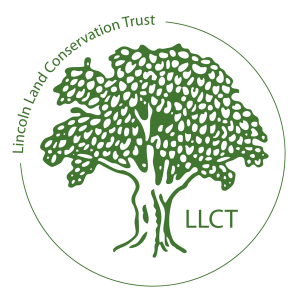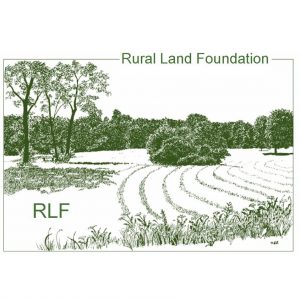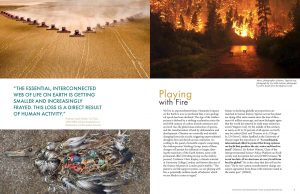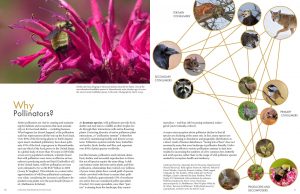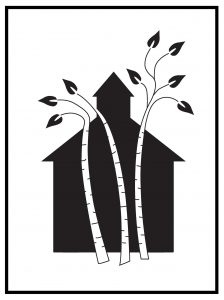Project Background
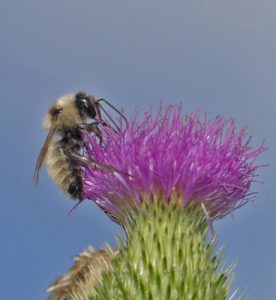
The Lincoln Pollinator Action Plan: “Planting the Way for Biodiversity and Climate Resilience” is a project developed by the Lincoln Land Conservation Trust in partnership with Evan Abramson of LandscapeInteractions and Dr. Robert Gegear, a professor of biology at UMASS Dartmouth. We propose to create a roadmap for biodiversity and climate resilience across the Town of Lincoln by rebuilding functionally diverse native ecosystems, through site-specific planting palettes and pollinator habitat designs that are based on scientific study. By incorporating multiple Case Study (scientifically researched) sites representing a wide array of land uses, landscape scenarios, ecological habitats, and aesthetics, Native Plant and Pollinator Toolkits will be developed that can be applied to sites across town, including on conservation, public, and private land, and beyond! Everyone is encouraged to participate along the way by helping to build a pollinator corridor across the town of Lincoln and through citizen science action.
Why the focus on threatened pollinators and biodiversity?
Wild pollinators are a keystone species, meaning other species in the ecosystem depend on their existence for survival. Wild bees, butterflies, moths, beetles, wasps, flies, and birds ensure the reproduction of many native plants. In turn, these plants provide food and shelter to other species, as well as carbon sequestration and other vital ecosystem services.
Biodiversity refers to the variety, abundance, and genetic diversity of species within an ecosystem. Biodiverse ecosystems are better able to adapt to and survive disruptive forces such as climate change and habitat loss. Functional diversity is one measure of biodiversity, with a specific focus on the important function that each species has in an ecosystem.
In Massachusetts, 2 out of 11 species of bumblebee have disappeared from the state and 2 more species are expected to be gone within the decade. MassWildlife lists 5 more bees, 9 beetles, 44 butterflies and moths, and over 260 plants as Species of Greatest Conservation Need in the 2015 State Wildlife Action Plan. This has raised major concern over an impending ecological catastrophe.
At the same time, most efforts to restore pollination systems have focused on overall abundance — “seeing lots of bees” — rather than the wide range of wild pollinators seen in a biodiverse and resilient ecosystem. The same problem arises from habitats planted with generic pollinator seed packets. While we see “lots of flowers,” those flowers are often providing resources for only a few common species of pollinators.
Different bees pollinate different plants based on behaviors and traits that have co-evolved over millions of years. A species-rich ecosystem contains a multitude of specialized relationships between certain species of plants and pollinators. As one declines, so does the other; and as one is encouraged, the other is revitalized.
The Lincoln Pollinator Action Plan aims to increase the functional diversity of wild and managed habitats on sites across Lincoln. Using evidence-based, native plant selection to support threatened pollinator species, Dr. Gegear and his team will document the changes in these habitats. We expect to see improvements to local biodiversity, ecological health, and climate change resilience at these sites.
The Lincoln Pollinator Action Plan
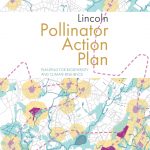
The Lincoln Pollinator Action plan was published in March 2021 is now online. This is a compressed web version. We would be happy to email a full resolution copy, simply email llct@lincolnconservation.org to request. You can also purchase a printed copy here.
The Action Plan report discusses the benefits of protecting and restoring functionally diverse, native pollinator habitat for improving ecosystem health, landscape resilience, carbon sequestration, and regional biodiversity. Featured in the report are several informative sections:
- Context: Information about pollinator decline and the importance of functional diversity.
- Science Informed Design: Descriptions of the three Case Study sites* on conservation land that will be monitored and researched for pollinator species presence and change by Dr. Robert Gegear of UMASS Dartmouth over a three-year period.
- Replicability: Toolkits that will be replicable and will include planting palettes and plant lists, habitat establishment and management strategies, lawn to habitat conversion tips, and site selection guidance.
- Connectivity: Maps describing connectivity between Case Study sites and a strategy for creating a pollinator corridor across Lincoln.
* A summary report on the Case Study sites from Dr. Robert Gegear will be published on our website in December, 2022.
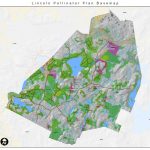
The Corridor Concept
Each Case Study site will serve as a representative landscape typology for other similar sites across the Town of Lincoln. By applying the planting designs, plant lists, implementation guidelines and maintenance strategies from each Case Study to ecologically similar sites, the ‘building blocks’ for a town-wide pollinator corridor will have been created. In connecting protected and restored native pollinator systems through corridors, we will help to increase the abundance, species richness, and geographic distribution of wild pollinators. This will increase biodiversity and ecological resilience across Lincoln, and will contribute toward mitigating climate change effects overall. To be successful, it will take restoring functional, native pollinator habitat everywhere and by all of us – from conservation staff and volunteers to private homeowners. Get involved!
Adoption and expansion of corridors beyond Lincoln and into surrounding communities is work we are pursuing through our affiliation with the Native Pollinator Task Force of the MetroWest Conservation Alliance, and work we hope to do with other regional conservation partners. The Lincoln Pollinator Action Plan may serve as a model for habitat management on conservation lands in the region and in communities across the Commonwealth and the Northeast.
Community Partners
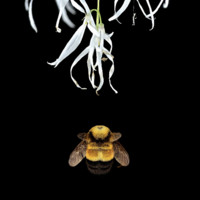 LandscapeInteractions
LandscapeInteractions
LLCT entered into a partnership with LandscapeInteractions in the fall of 2019 to help us research, protect, and restore wild pollination systems across Lincoln to increase biodiversity and climate change resiliency. Evan Abramson, M.S.E.D. is the founder of LandscapeInteractions and Dr. Robert Gegear, professor of biology at UMASS Dartmouth, is a scientific consultant.
 Evan is a Pollination Systems Designer + Planner who draws on his diverse experience as a regional planner, landscape designer, farmer, community organizer, award-winning documentary filmmaker and photojournalist, to design landscapes and regional corridors that build biodiversity and strengthen ecological resilience to a changing climate. Evan works at the ecosystems level, through the (re)creation of native pollination systems and individual pollinator-plant interactions. A former Land Use + Natural Resources Planner at the Franklin Regional Council of Governments, Evan designed a climate resiliency plan for the Deerfield River Watershed, the first of its kind in the State of Massachusetts. He holds a Master of Science in Ecological Design from the Conway School of Landscape Design, Certificates in Permaculture Design and Biodynamic Gardening, and is co-author of the Great Barrington Pollinator Action Plan.
Evan is a Pollination Systems Designer + Planner who draws on his diverse experience as a regional planner, landscape designer, farmer, community organizer, award-winning documentary filmmaker and photojournalist, to design landscapes and regional corridors that build biodiversity and strengthen ecological resilience to a changing climate. Evan works at the ecosystems level, through the (re)creation of native pollination systems and individual pollinator-plant interactions. A former Land Use + Natural Resources Planner at the Franklin Regional Council of Governments, Evan designed a climate resiliency plan for the Deerfield River Watershed, the first of its kind in the State of Massachusetts. He holds a Master of Science in Ecological Design from the Conway School of Landscape Design, Certificates in Permaculture Design and Biodynamic Gardening, and is co-author of the Great Barrington Pollinator Action Plan.
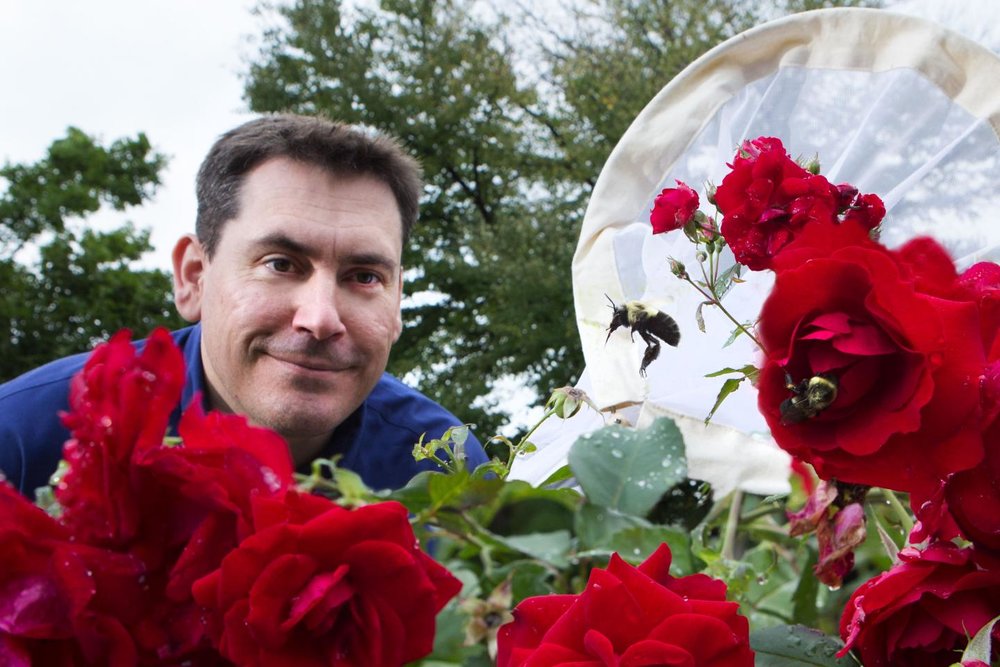 Dr. Gegear is a pollination ecologist and conservation biologist. He runs the Gegear Lab at UMASS Dartmouth and directs the New England Beecology Project. He has studied the ecology, evolution, and conservation of pollination systems native to eastern North America for over 25 years. Dr. Gegear considers bumblebees the ideal model to address his research questions, because they have evolved the behavioral capacity to flexibly track resources (floral nectar and pollen) in complex and constantly changing multi-sensory environments; are highly amenable to experimental study of behavior under laboratory and field conditions; are the main pollinator of numerous native plant species and therefore play a critical role in maintaining the function and diversity of natural ecosystems; have tremendous social and economic value as crop pollinators; and are easily identified while visiting flowers in the wild, thereby enabling citizen scientists with different academic backgrounds, perspectives, and life experiences to actively participate in his field-based research.
Dr. Gegear is a pollination ecologist and conservation biologist. He runs the Gegear Lab at UMASS Dartmouth and directs the New England Beecology Project. He has studied the ecology, evolution, and conservation of pollination systems native to eastern North America for over 25 years. Dr. Gegear considers bumblebees the ideal model to address his research questions, because they have evolved the behavioral capacity to flexibly track resources (floral nectar and pollen) in complex and constantly changing multi-sensory environments; are highly amenable to experimental study of behavior under laboratory and field conditions; are the main pollinator of numerous native plant species and therefore play a critical role in maintaining the function and diversity of natural ecosystems; have tremendous social and economic value as crop pollinators; and are easily identified while visiting flowers in the wild, thereby enabling citizen scientists with different academic backgrounds, perspectives, and life experiences to actively participate in his field-based research.
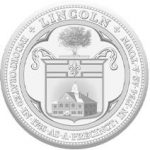 Conservation Commission
Conservation Commission
Conservation lands stewarded by LLCT and the Conservation Commission are included in the Lincoln Pollinator Action Plan report. Conceptual designs and management strategies will benefit the overall land management practices in Lincoln. As stewardship partners, we will support each other in implementing best practices for the management of native pollinator habitat.
The LLCT and Lincoln’s Conservation Commission work cooperatively to manage more than 2,000 acres of conservation land and 80 miles of trails. The Conservation Commission is a Town board appointed by Lincoln’s Board of Selectmen.
Birches School
LLCT and the Birches School have a long standing relationship and have worked together on several important conservation projects, including The Wang Project and the People for Pollinators meadow endeavor. For this project, Birches School will plant a pollinator garden on their school grounds designed by Evan and informed by Dr. Gegear’s research. The garden will provide the first Native Plant and Pollinator Toolkit for the project and will serve as a demonstration site for the project and the public at large. Additionally, Birches faculty will participate in a native bee identification training with LLCT and Dr. Gegear and the school will actively participate in The Beecology Project.
Birches School is an independent, co-educational, K-8 institution. The school’s mission emphasizes nature-based, project-driven thematic units designed to cultivate academic and social development and to encourage students’ curiosity, creativity, self-reliance, and empathy.
Native Pollinator Task Force (NPTF) Now the Bumble Bee Project
LLCT is a participant on the NPTF (Bumble Bee Project) that is simultaneously working to expand native pollinator habitat throughout the Sudbury, Assabet, and Concord (SuAsCo) watershed. NPTF is a subcommittee of the larger MetroWest Conservation Alliance group that is a collaboration of land trusts, local conservation commissions, and other groups that work together to improve the ecological health of the thirty-six communities and approximately 377 square miles around the Sudbury, Assabet, and Concord Rivers.
